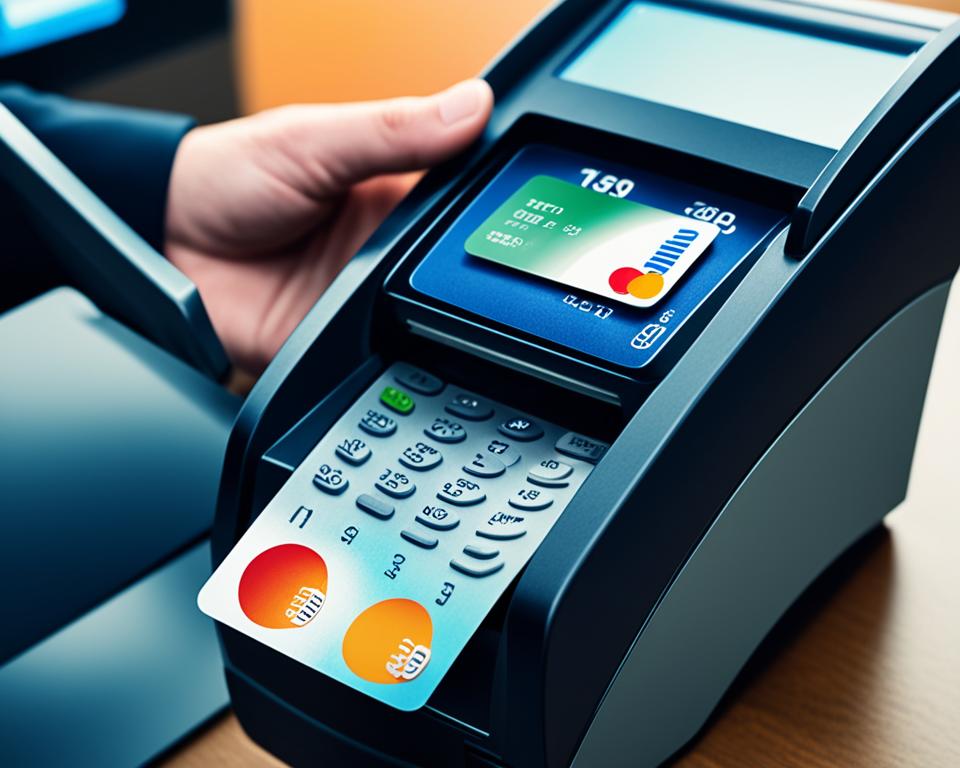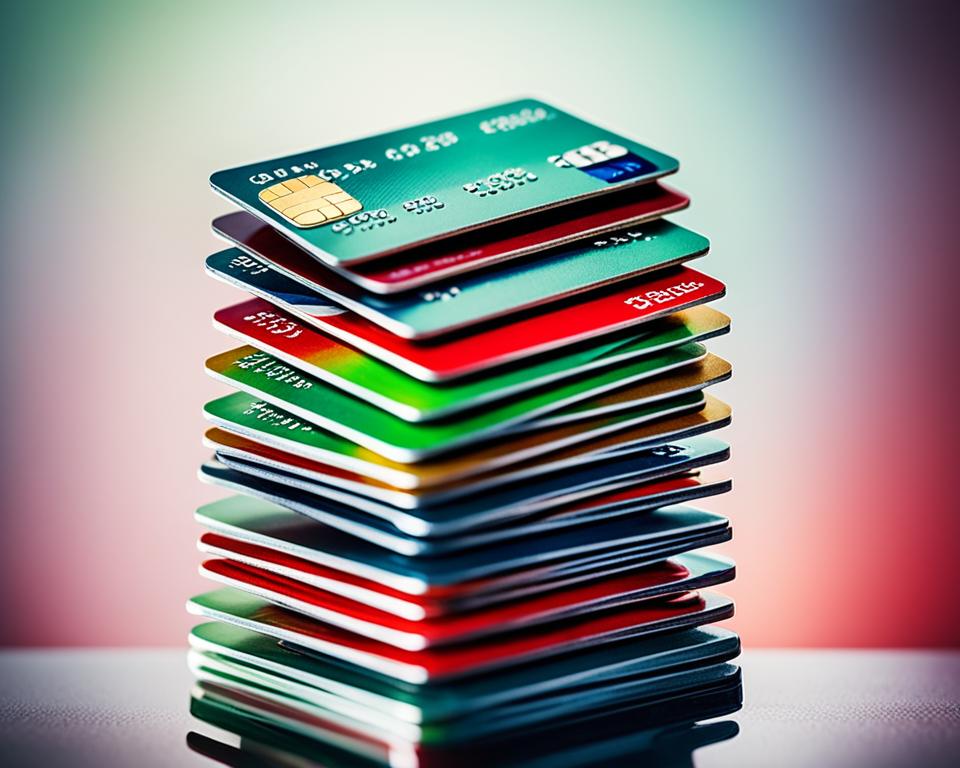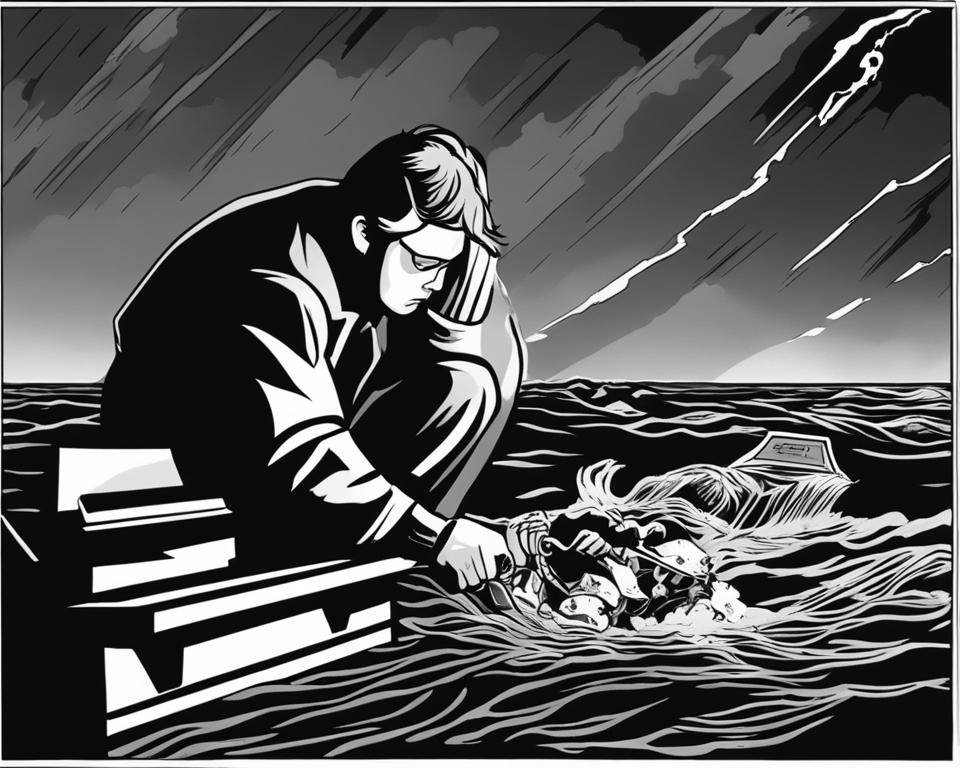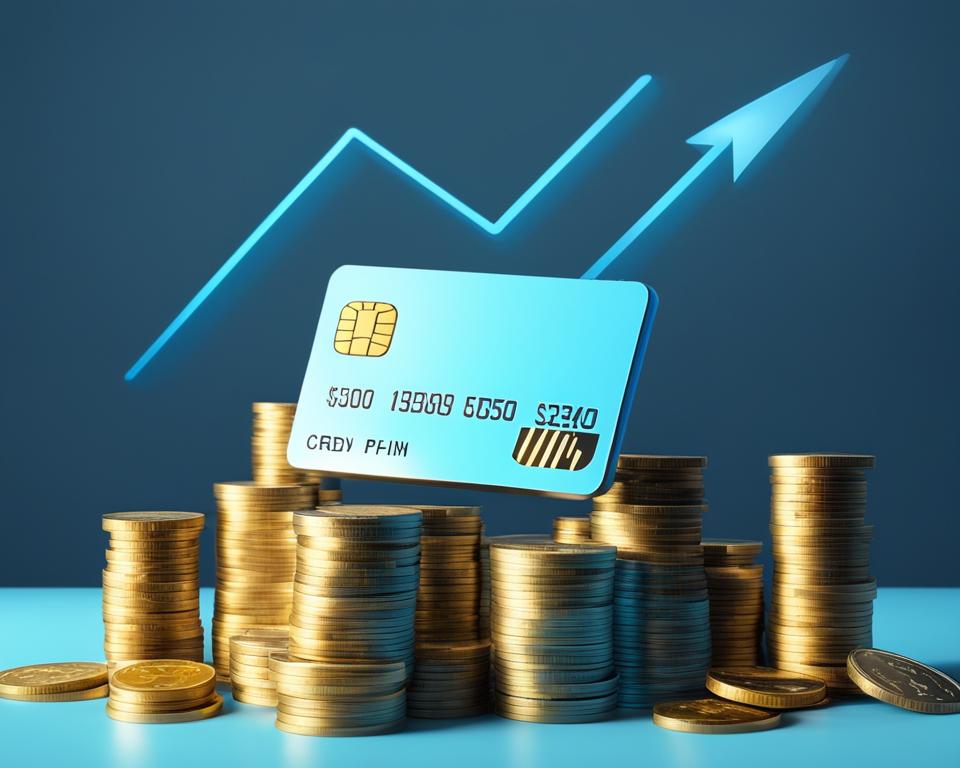Credit card payments are an essential part of managing your finances. Whether you’re making a purchase at a store or shopping online, knowing how credit card payments work can help you make informed decisions about your spending and build a strong credit history.
The process of credit card payment begins with authorization. When you use your credit card to make a purchase, the transaction is sent to the card issuer for approval. The issuer checks if you have enough available credit and verifies your identity. If approved, the payment is authorized, and the funds are reserved for the transaction.
Once authorized, the payment goes through a process called settlement. This is when the funds are transferred from your credit card issuer to the merchant’s bank. Settlement typically occurs at the end of a billing cycle, and the remaining balance is finalized.
It’s important to note that while the payment is authorized immediately, it may take a few days to post to your credit card statement. During this time, the transaction is processed and recorded by the merchant and your credit card issuer.
Key Takeaways:
- Understanding how credit card payments work can help you make informed financial decisions.
- Credit card payments go through a process of authorization and settlement.
- Authorization is the initial approval of the payment, while settlement is the transfer of funds from the credit card issuer to the merchant’s bank.
- While the payment is authorized immediately, it may take a few days to appear on your credit card statement.
- By understanding the credit card payment process, you can manage your finances and build a strong credit history.
What Is a Credit Card Balance?
A credit card balance refers to the total amount you owe on your credit card, including purchases, interest, and fees. It is essential to understand your credit card balance to manage your finances effectively and avoid unnecessary charges.
When you receive your monthly statement from your credit card issuer, it will display your current balance, minimum payment, and the due date for your payment. Your balance is the outstanding amount you owe, and it includes the purchases you’ve made using your credit card, any interest that has accrued, and any fees that have been applied.
Minimally, you need to make the minimum payment listed on your statement to avoid late fees and maintain a good credit history. However, it is highly recommended to pay off your balance in full whenever possible to avoid accumulating credit card interest and additional debt.
By paying at least the minimum payment, you prevent late fees and negative impacts on your credit score. However, if you only make the minimum payment, the remaining balance accrues interest. Over time, this can lead to a substantial increase in the overall amount you owe.
To illustrate:
| Balance | Interest Rate | Minimum Payment |
|---|---|---|
| $1,000 | 15% | $25 |
The table above shows an example scenario where the balance outstanding is $1,000, the credit card interest rate is 15%, and the minimum payment required is $25.
By making only the minimum payment, it would take several years to pay off the full balance and incur substantial interest charges. However, by paying off the balance in full, you avoid these interest charges and save money in the long run.
Remember, responsible credit card usage involves understanding your credit card balance, making timely payments, and striving to pay off your balance in full whenever possible to minimize interest expenses and maintain financial stability.
How Credit Card Interest Rates Work
Credit card interest rates play a significant role in how much you’ll pay for borrowing money on your credit card. Understanding how these rates work is essential for managing your credit card debt effectively.
When it comes to credit cards, interest rates are often expressed as an annual percentage rate (APR). The interest rate is divided by 12 and applied to your outstanding balance each month. This means that if you carry a balance on your credit card, you’ll be charged interest on that balance.
To avoid paying unnecessary interest charges, it’s best to pay off your credit card balance in full each month. By doing so, you can take advantage of the interest-free grace period typically offered by credit card issuers.
However, if you cannot pay off your balance in full, it’s important to be aware of the specific interest rate that applies to your account. The interest rate, often based on your creditworthiness, can vary from one credit card to another. It’s crucial to review your credit card agreement to understand the terms and conditions.
Revolving credit refers to the ability to carry a balance on your credit card from month to month. The interest charges on revolving credit can accumulate over time, leading to a higher overall debt if you’re not careful.
“Understanding how credit card interest rates work is crucial for managing your credit card debt effectively.”
Key Takeaways:
- Credit card interest rates are expressed as an annual percentage rate (APR).
- The APR is divided by 12 and applied to your outstanding balance each month.
- Paying off your credit card balance in full each month can help you avoid paying interest.
- Revolving credit can accumulate interest charges over time.
Understanding Credit Card Fees
Credit cards can be incredibly convenient for making purchases and managing your finances. However, it’s important to be aware of the various fees and penalties that may be associated with them. Understanding credit card fees can help you avoid unnecessary costs and maintain a healthy credit card account.
Late Fees
One common credit card fee is the late fee. This fee is charged when you fail to make your minimum payment by the due date specified on your monthly statement. Late fees can range from $25 to $40, depending on your credit card issuer.
Over-limit Fees
If you exceed your credit limit, you may be charged an over-limit fee. This fee is typically around $25 to $35 and can be assessed each month until you bring your balance back below the credit limit. It’s important to monitor your credit card balance and avoid spending beyond your approved credit limit to avoid these fees.
Cash Advance Fees
Using your credit card to get cash advances can also come with additional fees. Cash advance fees are typically a percentage of the amount advanced, ranging from 2% to 5% of the transaction or a flat fee. Additionally, interest on cash advances starts accruing immediately, often at a higher rate compared to regular purchases. It’s generally recommended to avoid cash advances unless it’s an absolute necessity.
Other Fees
Aside from the fees mentioned above, credit cards may come with various other fees, such as balance transfer fees, foreign transaction fees, annual fees, and more. Each credit card has its own fee structure, so it’s crucial to review the terms and conditions before applying for a credit card.
To help you visualize the various credit card fees and their potential impact on your finances, here is a table summarizing the common fees associated with credit cards:
| Fee Type | Amount |
|---|---|
| Late Fee | $25 – $40 |
| Over-limit Fee | $25 – $35 |
| Cash Advance Fee (percentage or flat fee) | 2% – 5% or flat fee |
| Balance Transfer Fee | Varies by credit card |
| Foreign Transaction Fee | Around 3% of each transaction |
| Annual Fee | Varies by credit card |
By familiarizing yourself with the fees that may apply to your credit card, you can make informed decisions about your spending and avoid unnecessary costs. Remember to always read the fine print and contact your credit card issuer if you have any questions or concerns.
The Importance of Making Payments on Time
Making credit card payments on time is crucial for maintaining a good credit history and credit score. Late payments can have a negative impact on your credit score and may result in additional fees. It’s important to prioritize paying your credit card bills on time to avoid these consequences and protect your financial health.
By paying your bills on time, you demonstrate financial responsibility to lenders and creditors. Your credit history reflects your ability to manage credit and pay off debts in a timely manner. Consistently making on-time payments shows that you are reliable and trustworthy, which can positively influence your credit score.
One way to ensure timely payments is to set up reminders. You can use a calendar app or set alarms to notify you of upcoming due dates. Additionally, many credit card issuers offer autopay options, allowing you to automatically deduct the payment from your bank account on the due date. Enrolling in autopay can provide peace of mind and help you avoid accidental late payments.
In addition to maintaining a good credit history, paying your credit card bills on time can also help improve your credit score. Payment history is a significant factor in calculating your credit score, accounting for approximately 35% of the overall score. By consistently making on-time payments, you demonstrate responsible credit behavior and build a positive payment history.
On the other hand, late payments can have a detrimental effect on your credit score. Even a single late payment can lower your score and remain on your credit report for up to seven years. Late payments can signal financial irresponsibility to lenders, making it more challenging to obtain credit in the future and potentially leading to higher interest rates or credit denials.
Remember, paying your credit card bills on time is not only about avoiding negative consequences; it’s also an opportunity to take control of your financial well-being. A good credit history and high credit score can open doors to better interest rates, loan approvals, and other financial opportunities.
“Paying your credit card bills on time is not just a responsibility; it’s a strategic move to safeguard and improve your creditworthiness.”

| Benefits of Making Payments on Time | Negative Impact of Late Payments |
|---|---|
|
|
Different Ways to Make Credit Card Payments
When it comes to making credit card payments, there are various methods available to suit your convenience. Whether you prefer the simplicity of online transactions or the reassurance of automated payments, credit card issuers offer a range of options to meet your needs. Explore the different methods below to find the one that works best for you:
- Autopay: Many credit card issuers provide the option to set up autopay. With this feature, your payment is automatically deducted from your bank account each month on your due date. It ensures that your payments are made on time without any manual intervention.
- Online Payments: Making payments online has become increasingly popular and convenient. Most credit card issuers have websites or mobile apps that allow you to log in to your account and make payments with just a few clicks.
- In-Person Payments: If you prefer face-to-face interactions, you can visit a bank branch or an ATM to make your credit card payment. Simply present your card or provide the necessary details to complete the transaction.
- Phone Payments: Some credit card issuers provide the option to make payments over the phone. You can call the customer service hotline and follow the instructions to process your payment.
- Check Payments: For those who prefer traditional methods, you can always opt to mail a check to your credit card issuer. Ensure that you include the necessary details and allow sufficient time for the payment to reach its destination.
Choose the payment method that aligns with your preferences and ensures that your payments are made on time, avoiding any late fees or penalties. It’s important to consider the convenience, reliability, and security of each method when making your decision.
Comparison of Credit Card Payment Methods
| Payment Method | Convenience | Reliability | Security |
|---|---|---|---|
| Autopay | High | High | Securely linked to your bank account |
| Online Payments | High | High | Encrypted transactions |
| In-Person Payments | Moderate | High | Transaction receipts for verification |
| Phone Payments | Moderate | Moderate | Identity verification required |
| Check Payments | Low | Moderate | Dependent on postal service |
Consider your personal preferences and the specific advantages of each payment method when selecting how to pay off your credit card balance. The goal is to make timely payments that fit effortlessly into your financial routine, helping you maintain a positive credit history and build a strong financial future.
How to Pay Off Your Credit Card Balance
Paying off your credit card balance is crucial for avoiding interest charges and reducing your debt. By implementing a few strategies, you can expedite the repayment process and take control of your financial situation.
Paying More Than the Minimum Payment
To make significant progress in paying off your credit card balance, it’s important to pay more than the minimum payment each month. By doing so, you’ll reduce the amount of interest you owe, allowing you to save money in the long run. Determine a realistic amount that you can afford to pay and strive to meet or exceed it consistently.
| Monthly Payment | Interest Savings |
|---|---|
| $500 | $1,200 |
| $400 | $900 |
| $300 | $600 |
Table: Comparison of Monthly Payment and Interest Savings
Consider a Balance Transfer
If you have a significant amount of debt on your credit card, a balance transfer may be a beneficial option to explore. A balance transfer involves moving your existing credit card balance to a credit card with a lower interest rate. By doing so, you can save money on interest and potentially pay off your balance faster.
However, it’s important to consider any balance transfer fees and the new credit card’s terms and conditions before proceeding. Calculate the potential savings and ensure that the balance transfer is a financially sound decision for your specific situation.
Image: Reducing Credit Card Debt
By adopting these strategies and making consistent efforts to pay off your credit card balance, you can take control of your financial future. Remember, reducing your debt not only helps you save money on interest but also improves your overall financial well-being. Take the first step towards financial freedom today by devising a plan and sticking to it.
The Impact of Credit Card Utilization
Credit card utilization plays a crucial role in determining your credit score and overall creditworthiness. It refers to the percentage of your available credit that you are currently using. To maintain a healthy credit profile, it is advisable to keep your credit card utilization below 30%. Higher utilization can have a negative impact on your credit score and make it more challenging to obtain credit in the future.
Managing your credit card utilization is essential for maintaining a good credit score. Here are some tips to help you keep your utilization in check:
- Monitor your credit limit: Keep track of your available credit limit and ensure that your usage remains below 30% of the total limit. This will help demonstrate responsible usage and positively impact your credit score.
- Request a credit limit increase: If you find that your credit card utilization is consistently high, you can consider contacting your credit card issuer to request a credit limit increase. This will increase your available credit and lower your utilization ratio.
- Make multiple payments: Instead of making a single payment at the end of your billing cycle, consider making multiple payments throughout the month. This helps in keeping your balance low, which in turn lowers your credit card utilization.
By effectively managing your credit card utilization, you can improve your credit score and increase your chances of obtaining credit on favorable terms in the future.
The importance of credit card utilization
“Credit card utilization is a vital factor in determining your creditworthiness. It showcases your ability to manage credit responsibly and can significantly impact your credit score.”
The Payment Cycle and Due Date
Understanding the credit card payment cycle and due date is essential for managing your finances effectively. By staying informed about your monthly statement, balance, and payment deadlines, you can avoid late fees and negative impacts on your credit score.
Every credit card follows a payment cycle that typically spans a month. During this period, you make purchases and accrue a balance. At the end of the cycle, your credit card issuer provides you with a monthly statement that outlines your balance, minimum payment, and due date.
It is crucial to pay your credit card bill on time. Missing the due date can result in late payment fees, increased interest rates, and significant harm to your credit score. By paying your bill in full or at least the minimum payment by the due date, you demonstrate responsible financial behavior and maintain a positive credit history. This allows you to continue using your credit card effectively and avoid unnecessary fees.
Setting up reminders or enrolling in autopay can help you ensure that you never miss a payment. These options provide convenience and peace of mind by automatically deducting the amount due from your bank account on the specified due date.
Remember, your credit card statement is a valuable source of information about your financial obligations. It provides a comprehensive overview of your spending, outstanding balance, and upcoming payment deadlines. Be sure to review your statement regularly and understand its contents to make informed financial decisions.
| Key Components of a Monthly Statement: |
|---|
| Balance: The total amount you owe on your credit card, including purchases, fees, and interest. |
| Minimum Payment: The minimum amount you need to pay by the due date to avoid late fees. |
| Due Date: The deadline to make your credit card payment. |
By understanding the payment cycle and due date, you can effectively manage your credit card payments, maintain a healthy credit score, and enjoy the benefits of responsible credit card usage.
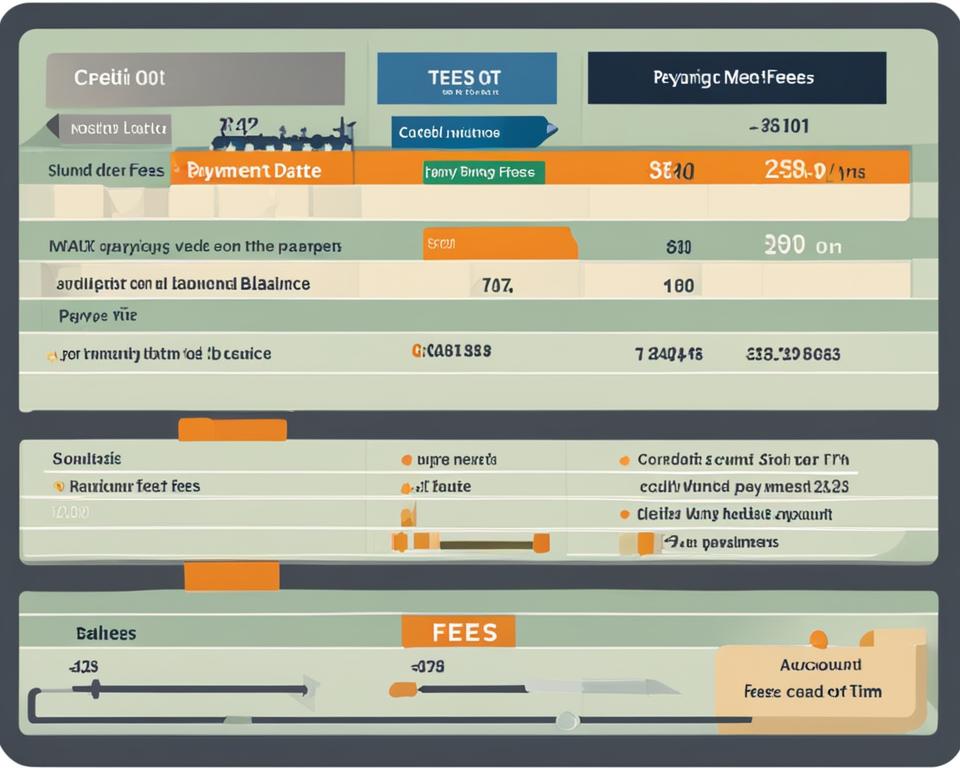
How Credit Card Payments are Processed
When it comes to credit card payments, there is a precise process that occurs behind the scenes, involving authorization and settlement. Understanding how this process works can give you a clearer picture of how your payments are handled.
When you make a purchase using your credit card, your card information is transmitted to the merchant’s bank for authorization. This step ensures that you have sufficient funds or available credit to complete the transaction. The authorization process typically takes only a few seconds, allowing you to proceed with your purchase swiftly.
If your credit card payment is approved during authorization, the funds are then transferred from your credit card issuer to the merchant’s bank. This transfer secures the payment and completes the transaction, enabling the merchant to receive their payment.
The settlement process occurs at the end of each billing cycle. During this time, the remaining balance on your credit card is finalized, and the relevant financial institutions ensure that the appropriate transactions are accurately recorded and reflected in your account.
It’s important to note that while the payment is authorized immediately, it may take a few days for the transaction to appear on your credit card statement. This delay is common and allows the necessary time for the financial institutions to process and reconcile the payment.
With credit card payment processing, every transaction goes through the essential steps of authorization and settlement, ensuring that payments are securely handled from start to finish.
Credit Card Payment Security
When it comes to credit card payment security, credit card issuers prioritize protecting your sensitive information. They implement advanced security measures such as encryption and secure payment gateways to ensure the safety of your financial data.
One key feature that most credit cards offer is fraud protection. This valuable service safeguards you against unauthorized charges and provides peace of mind. In the event of any suspicious activity on your credit card, it’s crucial to review your statements regularly and report it immediately to your credit card issuer.
By promptly reporting any unauthorized charges, you can minimize potential financial losses and prevent further fraudulent transactions. Your credit card issuer will investigate the situation and take appropriate action to resolve the matter.
“Credit card payment security measures and fraud protection are essential for ensuring the safety and integrity of your financial transactions.”
Tips for Enhancing Credit Card Payment Security
Here are a few additional tips to enhance credit card payment security:
- Keep your credit card details confidential and avoid sharing them with anyone.
- Create strong and unique passwords for your online credit card accounts.
- Regularly monitor your credit card transactions and report any suspicious activity immediately.
- Be cautious when making online purchases, ensuring that you only provide your credit card information on secure websites.
- Enable two-factor authentication whenever possible to add an extra layer of security to your credit card accounts.
By following these security measures and staying vigilant, you can protect yourself against credit card fraud and unauthorized charges, ensuring a secure and worry-free payment experience.
| Security Measures | Benefits |
|---|---|
| Encryption | Secures your credit card information during online transactions. |
| Secure Payment Gateways | Provide a secure platform for transferring your payment information. |
| Fraud Protection | Safeguards against unauthorized charges and minimizes financial losses. |
| Regular Statement Review | Allows you to identify and report any suspicious activity promptly. |

Benefits of Paying Your Balance in Full
Paying your credit card balance in full each month offers numerous advantages. By doing so, you can avoid paying interest on your purchases, resulting in significant savings over time. Additionally, paying your balance in full allows you to take advantage of various credit card perks and rewards.
Savings in Interest Expenses
If you consistently pay your credit card balance in full, you can eliminate the need to pay costly interest charges. Credit card interest rates can be high, often in the double digits, and can quickly accrue if you have a large outstanding balance. By paying in full, you can free up your finances and allocate those funds toward other financial goals or purchases of your choice.
Credit Card Perks and Rewards
Many credit cards offer perks and rewards programs specifically designed for customers who pay their balance in full. These perks may include cashback on purchases, travel rewards such as free flights or hotel stays, or even discounts on specific products or services. By taking advantage of these perks, you can maximize the value you get from your credit card usage and enjoy additional benefits beyond the convenience of a credit line.
| Credit Card Perk | Description |
|---|---|
| Cashback | Earn a percentage of your purchases back as cash rewards. |
| Airline Miles | Accrue miles that can be used for free flights or upgrades. |
| Hotel Points | Collect points toward free hotel stays or other hotel benefits. |
| Discounts | Access exclusive discounts on various products and services. |
Maximizing Credit Card Benefits
In order to fully maximize the benefits of paying your credit card balance in full, it is important to choose a credit card that aligns with your financial goals and lifestyle. Research different credit cards and compare their perks, rewards, and terms to find one that best suits your needs. Additionally, remember to use your credit card responsibly and avoid overspending to ensure that the benefits you earn outweigh any fees or interest charges that may arise from improper credit card usage.
Tips for Responsible Credit Card Use
Using credit cards responsibly is essential for maintaining a healthy financial lifestyle. By following these tips, you can make the most out of your credit cards while avoiding unnecessary debt.
Create and Stick to a Budget
One of the key aspects of responsible credit card use is creating a budget and sticking to it. By setting spending limits for different categories, such as groceries, entertainment, and utilities, you can better manage your finances and avoid overspending.
Track Your Spending
It’s important to keep track of your credit card spending to ensure that you can afford to pay off your balance each month. By monitoring your purchases, you can identify any unnecessary expenses and make adjustments to stay within your budget.
Use Credit Cards for Affordable Purchases
Limit your credit card usage to purchases that you can comfortably afford. Avoid using your credit card for impulse buys or expenses that may strain your budget. By using credit cards responsibly, you can prevent yourself from falling into unnecessary debt.
Regularly Monitor Your Statements
Take the time to review your credit card statements regularly to check for any errors or fraudulent charges. If you spot any discrepancies, report them to your credit card issuer immediately. Being vigilant about monitoring your statements can help protect you from unauthorized activity and ensure the accuracy of your records.
Pay Your Balance in Full
To avoid accruing interest and incurring unnecessary debt, aim to pay off your credit card balance in full each month. By doing so, you can maximize the benefits of your credit card usage and save money on interest charges.
By following these tips for responsible credit card use, such as budgeting, monitoring spending, and paying off your balance in full, you can maintain a healthy financial lifestyle and effectively manage your credit cards.
How Credit Cards Impact Your Credit Score
Credit cards have a significant influence on your credit score, a numerical representation of your creditworthiness. Several factors, such as credit utilization, payment history, and length of credit history, are directly affected by your credit card usage.
Credit utilization refers to the ratio of your credit card balances to your credit limits. Maintaining a low credit utilization, generally below 30%, is ideal for demonstrating responsible credit management and positively impacting your credit score.
Payment history is another critical component of your credit score. Consistently making timely payments on your credit card bills helps establish a positive payment history, indicating your reliability in repaying debts on schedule.
Length of credit history also plays a role in determining your credit score. Credit cards with longer account ages contribute to a more established credit history, which can increase your creditworthiness.
To manage your credit cards effectively and enhance your credit score, follow these tips:
- Make timely payments: Ensure that you pay your credit card bills on time to maintain a positive payment history and avoid late payment penalties.
- Keep credit card balances low: Aim to keep your credit card utilization as low as possible by paying off your balances regularly. This demonstrates responsible credit utilization and can positively impact your credit score.
- Maintain a diverse credit mix: Having a mix of credit accounts, including credit cards, loans, and mortgages, can strengthen your credit profile and show your ability to handle different types of credit.
By implementing these strategies and managing your credit cards responsibly, you can improve your credit score, gain access to better lending opportunities, and enjoy the benefits of a strong credit history.
Conclusion
Credit card payments are an essential aspect of managing personal finances, and understanding how they work is crucial for responsible credit card use. By familiarizing themselves with the payment process, individuals can make informed decisions, avoid unnecessary fees, and build a strong credit history. It is important to pay credit card bills on time, keep balances low, and monitor spending habits to maintain a healthy financial lifestyle.
When using credit cards responsibly, individuals can enjoy the convenience and benefits that come with them. By paying bills promptly, they can prevent late fees and negative impacts on their credit score. Furthermore, keeping credit card balances low can positively impact credit utilization, an essential factor in determining creditworthiness. Regularly monitoring spending habits helps individuals stay within their budget and make informed financial decisions.
In conclusion, understanding credit card payments and utilizing credit cards responsibly are crucial for managing personal finances effectively. By paying bills on time, keeping balances low, and monitoring spending habits, individuals can avoid unnecessary fees and build a strong credit history. This responsible use of credit cards not only promotes financial well-being but also provides individuals with convenience and benefits that come with credit card usage.
FAQ
How do credit card payments work?
Credit card payments involve the process of authorizing and settling transactions. When a purchase is made, the credit card information is transmitted to the merchant’s bank for authorization. If approved, the funds are transferred from the credit card issuer to the merchant’s bank. The settlement process occurs at the end of each billing cycle when the remaining balance is finalized.
What is a credit card balance?
A credit card balance refers to the total amount owed on a credit card, including purchases, fees, and interest. The credit card issuer provides a monthly statement that lists the balance, minimum payment, and due date.
How do credit card interest rates work?
Credit card interest rates are expressed as an annual percentage rate (APR) and are divided by 12 to determine the monthly interest charged. If a balance is carried on the credit card, interest is charged on that balance. Paying off the balance in full each month can help avoid interest charges.
What are common credit card fees?
Common credit card fees include late payment fees, over-limit fees, cash advance fees, and more. It’s important to review the terms and conditions of your credit card to understand when these fees may apply.
Why is it important to make credit card payments on time?
Making credit card payments on time is crucial for maintaining a good credit history and credit score. Late payments can negatively impact the credit score and may result in additional fees.
What are the different ways to make credit card payments?
There are multiple ways to make credit card payments, including setting up autopay, making online payments through the credit card issuer’s website or mobile app, in-person payments at a bank or ATM, phone payments, or mailing a check.
How can I pay off my credit card balance?
To pay off a credit card balance, consider paying more than the minimum payment each month. This helps reduce the amount of interest owed and accelerates the repayment process. A balance transfer to a credit card with a lower interest rate can also save money on interest and expedite balance repayment.
What is credit card utilization and why is it important?
Credit card utilization refers to the percentage of available credit being used. Keeping credit card utilization below 30% is ideal as higher utilization can negatively impact the credit score and future credit approvals.
What is the payment cycle and due date?
The payment cycle refers to the monthly billing period specified by the credit card issuer. The monthly statement outlines the balance, minimum payment, and due date. Paying the bill in full or at least the minimum payment by the due date helps avoid late fees and negative impacts on the credit score.
How are credit card payments processed?
Credit card payments go through a process of authorization and settlement. When a purchase is made, the credit card information is authorized with the merchant’s bank, and if approved, the funds are transferred from the credit card issuer to the merchant’s bank. It may take a few days for the payment to appear on the credit card statement.
How is credit card payment security ensured?
Credit card issuers implement measures such as encryption and secure payment gateways to protect sensitive information. Most credit cards also offer fraud protection, which safeguards against unauthorized charges. Regularly reviewing credit card statements and reporting suspicious activity is important for security.
What are the benefits of paying the credit card balance in full?
Paying the credit card balance in full can help avoid interest charges on purchases, saving money in the long run. Some credit cards also offer perks and rewards for customers who pay their balance in full, such as cashback or travel rewards.
How can I use credit cards responsibly?
To use credit cards responsibly, create a budget and stick to it. Only make purchases that can comfortably be paid off each month and regularly monitor credit card statements for errors or fraudulent charges.
How do credit cards impact credit scores?
Credit cards play a significant role in determining credit scores. Factors such as credit utilization, payment history, and length of credit history are influenced by credit card usage. Managing credit cards effectively can positively impact credit scores and overall creditworthiness.

